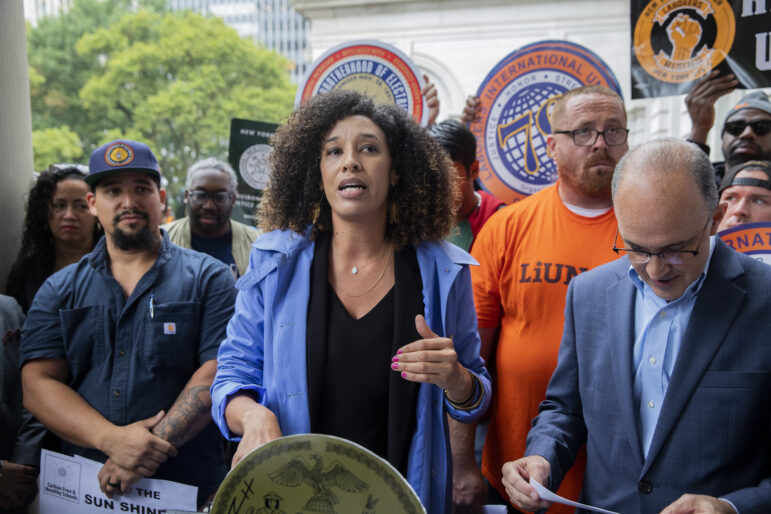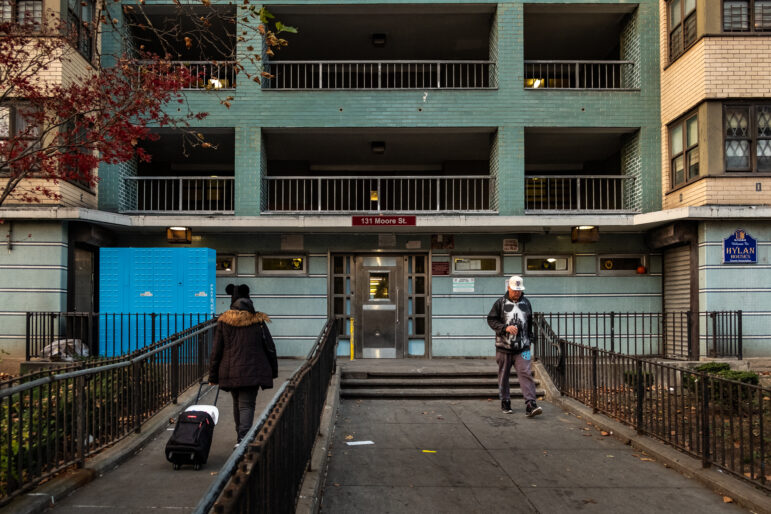The 1.2 million New York City residents who speak English “less than very well” have just lost the city’s major referral source for literacy classes, the Literacy Referral Hotline of the Literacy Assistance Center.
The hotline closed Friday after 24 years of service because the state Education Department, which provided $280,000 per year for the last five years, decided not to renew its contract. The hotline – to which the city’s 311 help line directed all requests for ESOL (English for Speakers of Other Languages) classes – not only aided immigrants in their quest to learn English, but also referred native English speakers looking to better their language and math skills, parents who wanted to tutor their children and would-be literacy volunteers.
“I am heartbroken,” said LAC Executive Director Elyse Rudolph. “We receive thousands of calls every year, and our operators take the time to ask the right questions so we can provide the most useful information to our callers according with their needs, location and budget.”
The LAC hotline received more than 12,000 calls last year from all over the state, but the majority came from the city’s five boroughs. Between January and August of this year, the hotline answered more than 7,700 calls. Spending an average of seven to 10 minutes per call, the line operators spoke English, Spanish, Creole and French Creole and relayed information from a computerized database with thousands of free and low-cost programs offering GED test preparation, English language classes and vocational training around the state.
In one sign of the demand for language courses, the CUNY Adult Literacy Program has approximately 13,000 students enrolled, according to its director, Leslie Oppenheim. “We referred thousands of applicants each year to the LAC hotline, so with us it is more like an inverse referral system – but nevertheless, it is the only place we can tell them to go,” Oppenheim said.
According to the state education department, however, Oppenheim’s sense of loss need not be so acute. She, Rudolph and others were not aware last week, but the state plans to replace the LAC hotline with an online referral service provided through Rockefeller College at SUNY-Albany. State Education Department spokesman Tom Dunn says that a new website will be up and running by Oct. 1 (and reachable through nysed.gov) to provide the same information as the hotline. It will be the place to find adult literacy and GED programs for the entire state.
Dunn said the hotline “has provided an exceptional level of service over the past 20 years,” but was cut because federal Workforce Investment Act funding was reduced by more than half a million dollars. “It has become imperative to find more cost-effective ways to deliver services to the public,” he said.
The city Department of Education also operates intake centers to match those seeking literacy services with providers. The centers can be found by calling 311.
Although LAC’s Rudolph had said of the hotline, “we are willing to reconfigure it and make it more cost-efficient … we are knocking the doors of foundations and private enterprises to find the funds to keep it working,” the new online service may make that unnecessary.
The demand for literacy services, however, doesn’t look like it will cease anytime soon. Although the 2005 American Community Survey reported that 1.2 million New Yorkers speak English “less than very well,” only 41,585 New Yorkers were enrolled in state-funded ESOL classes that year, or 3.4 percent of those with limited language skills. According to a recent report by the Center for an Urban Future, City Limits’ sister think tank, there are simply nowhere near enough ESOL services for the state’s 4 million immigrants, and industry considers it a major handicap to business growth.
This story has been corrected. 9/7/07








